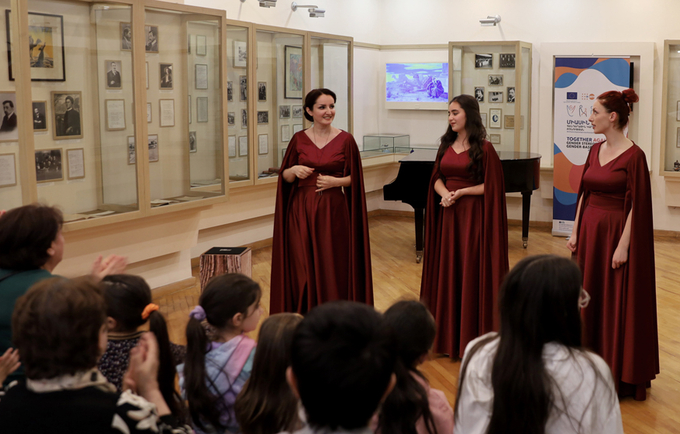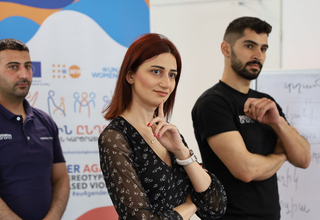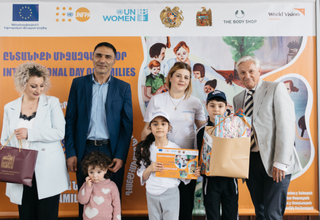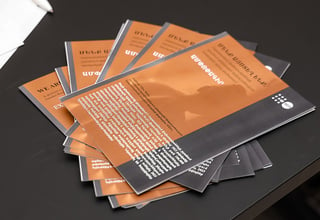"For the first time, I learned that we had such strong female figures a hundred years ago who fought for women’s rights, and I was amazed. In general, it was the first time I could watch such a performance," says 16-year-old Khatuna Usoyan.
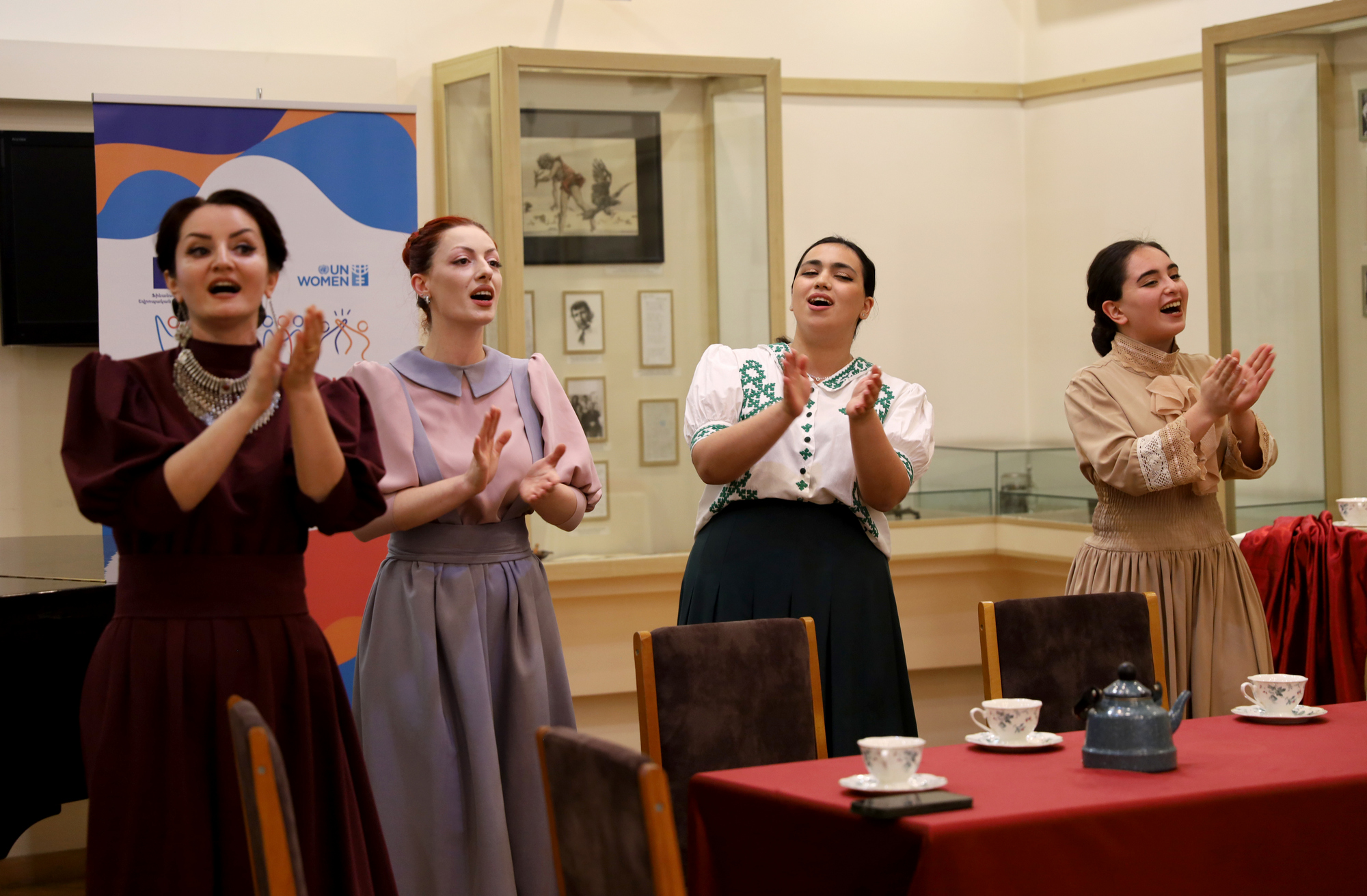
On May 18, during the Museum Night pan-European event at the House-Museum of the famous Armenian poet Avetik Isahakyan, the "100 Years Later" performance took on an exceptional meaning for Khatuna, as she says. Khatuna is from a Yezidi family and says that as a representative of a national minority, she does not face discrimination. Still, as a person with hearing loss, she meets many difficulties.
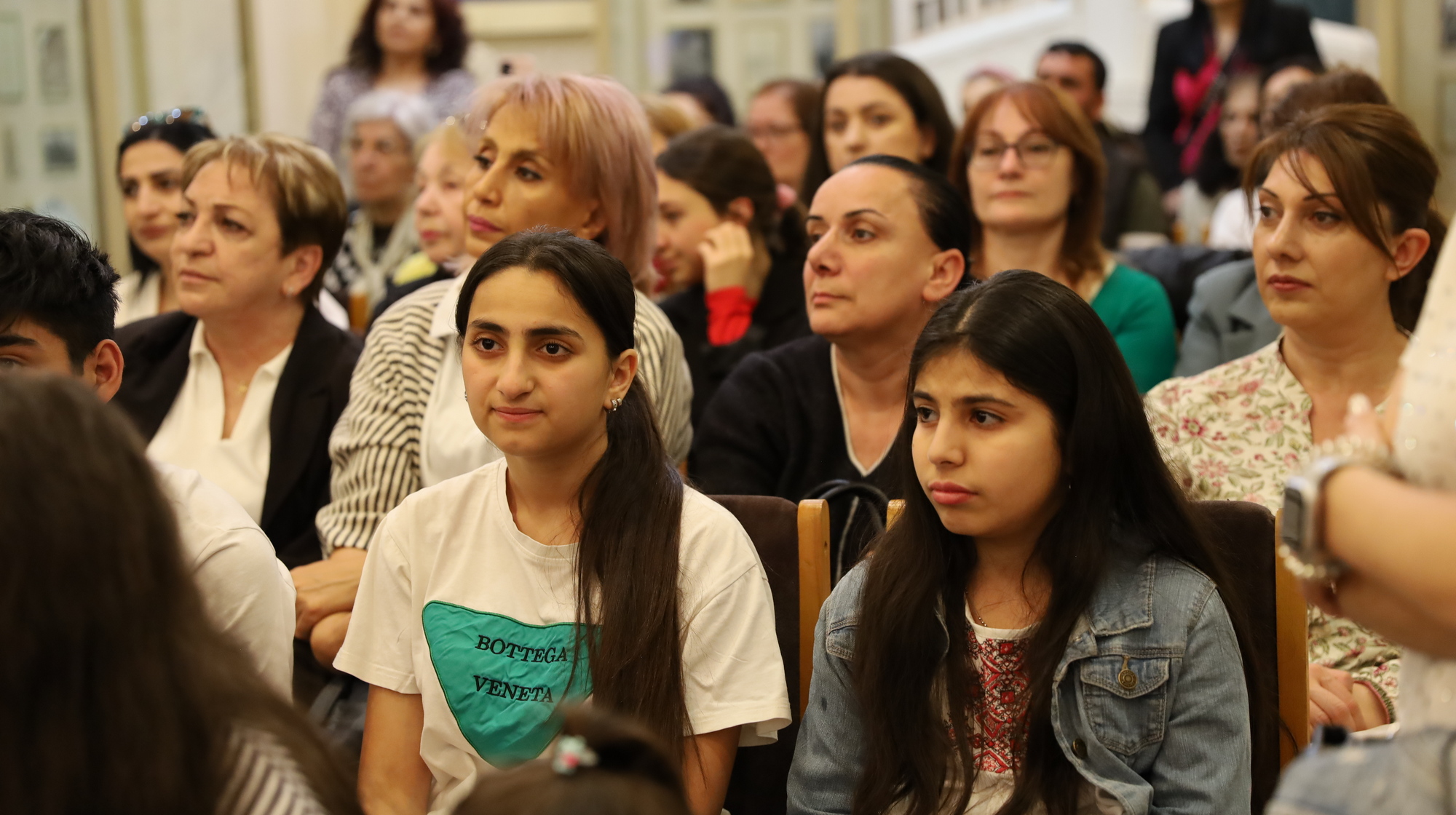
"In general, people with hearing difficulties face many obstacles. Most individuals do not know sign language, and no interpreters are available in many places. I particularly enjoy being at our school, where I can dance hip-hop, which I really like. However, in the future, I might pursue a career as a nail artist. I believe that in that case, I will be able to work more easily. Besides, I have taken manicure courses and enjoyed them," says Khatuna from Yerevan.
The “100 Years Later” play showcases prominent Armenian female public figures of the 20th century and their roles in women's empowerment. Actresses portrayed MPs from the Parliament of the First Republic of Armenia: Varvara-Varya Sahakyan, Katarine Zalyan-Manukyan, Perchuhi Partizpanyan-Barseghyan, and famous public figures Zapel Yesayan and Shushanik Kurginyan.
For the first time, the performance by the Nairyan vocal ensemble was presented entirely in sign language within the “EU 4 Gender Equality: Together against gender stereotypes and gender-based violence” programme (phase 2). The event brought together about 40 guests, including young girls and boys with hearing loss.
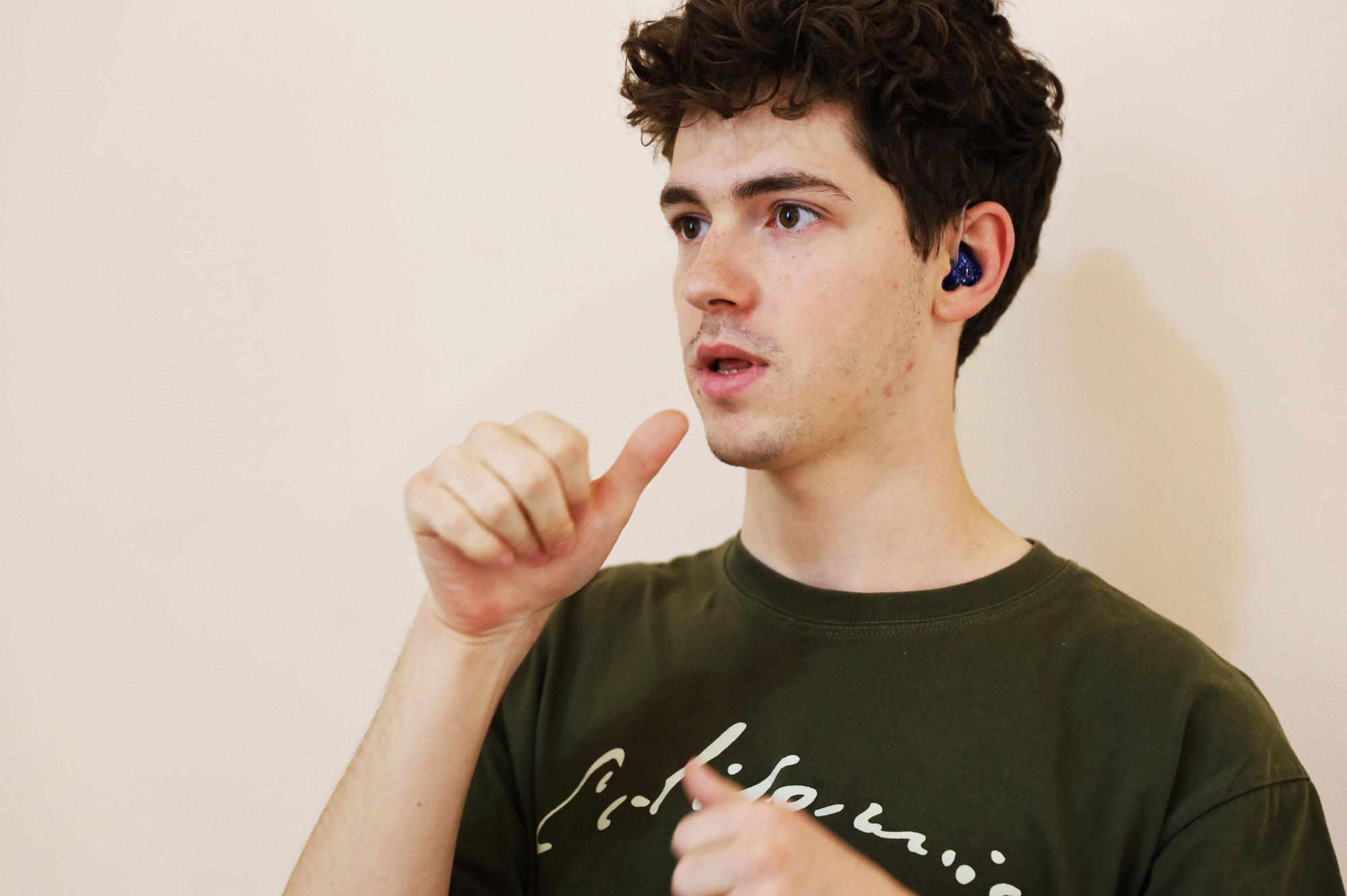
"It was exciting to learn about the powerful Armenian women we had a hundred years ago. Generations must continue their work," says 19-year-old George Lalayan from Yerevan. He is studying acting at the Yerevan State Institute of Cinema and Theater. George is also learning 3D modeling for jewelry design and has previously completed a course in clothing modeling.
"I really enjoy pantomime and acting, and I frequently visit museums. I believe equal opportunities should be provided for all, and initiatives like this should be more frequent. People with hearing loss can do everything; they just communicate through sign language. All that's needed for our worlds to connect easily is the presence of an interpreter or knowledge of sign language," says George.
The performance was followed by an Armenian folk songs concert accompanied by sign language. The concert started with the "Nairyan" vocal ensemble musicians teaching the audience a song in sign language.
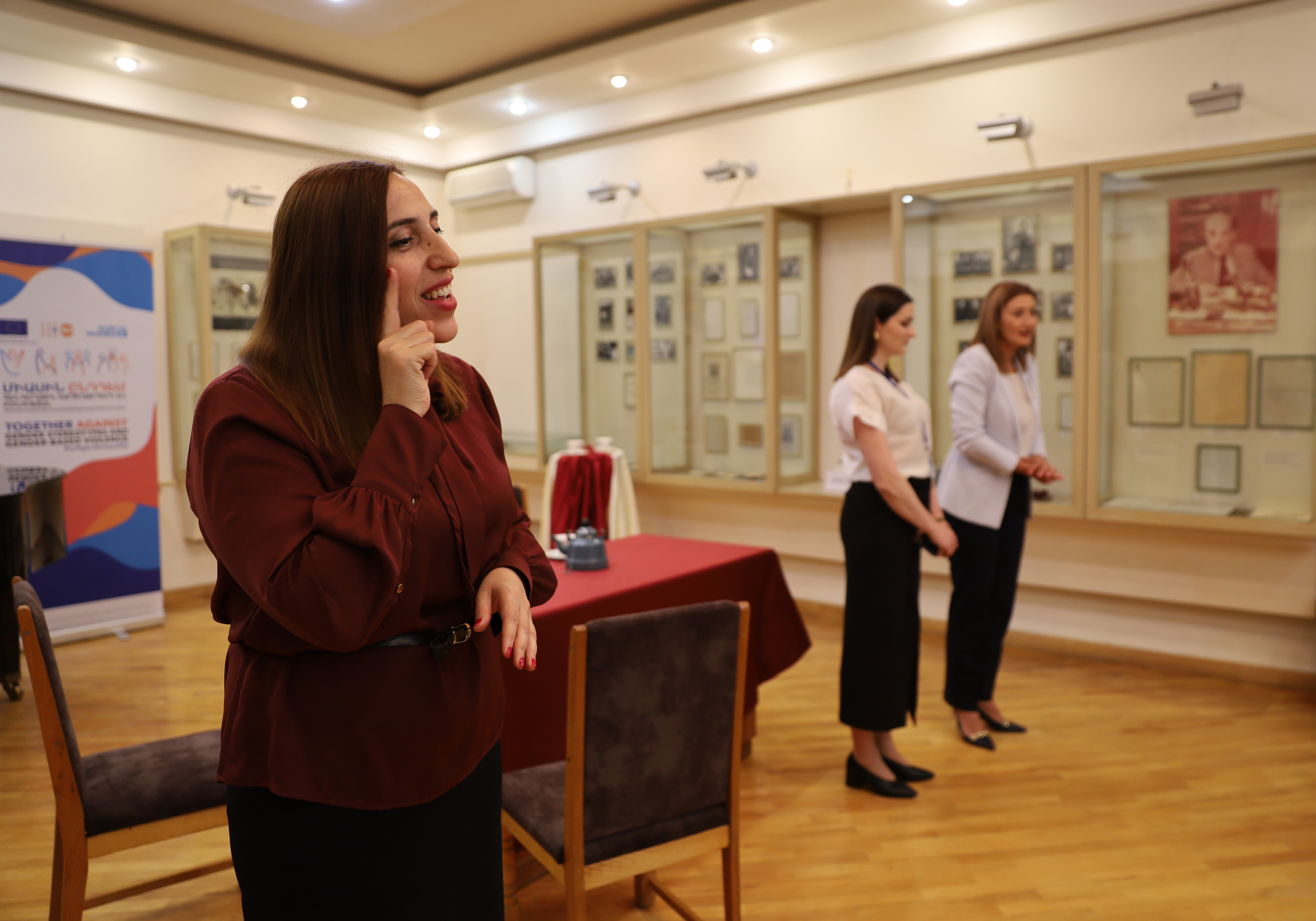
17-year-old Vardanush Mamajanyan from the Gegharkunik region especially liked the song played at the end of the performance, which conveyed the message that women should be strong and brave.
"I have a strong passion for theater and dream of becoming an actor. Recently, I had the opportunity to perform in a theater project, which was a great experience. However, after finishing school, I decided to pursue a career as a chef instead of following my dream path. The main reason for this decision is my hearing loss. I am concerned about the challenges I may face in the “hearing world” due to the lack of translators and the limited knowledge of sign language among hearing individuals," Vardanush explains.
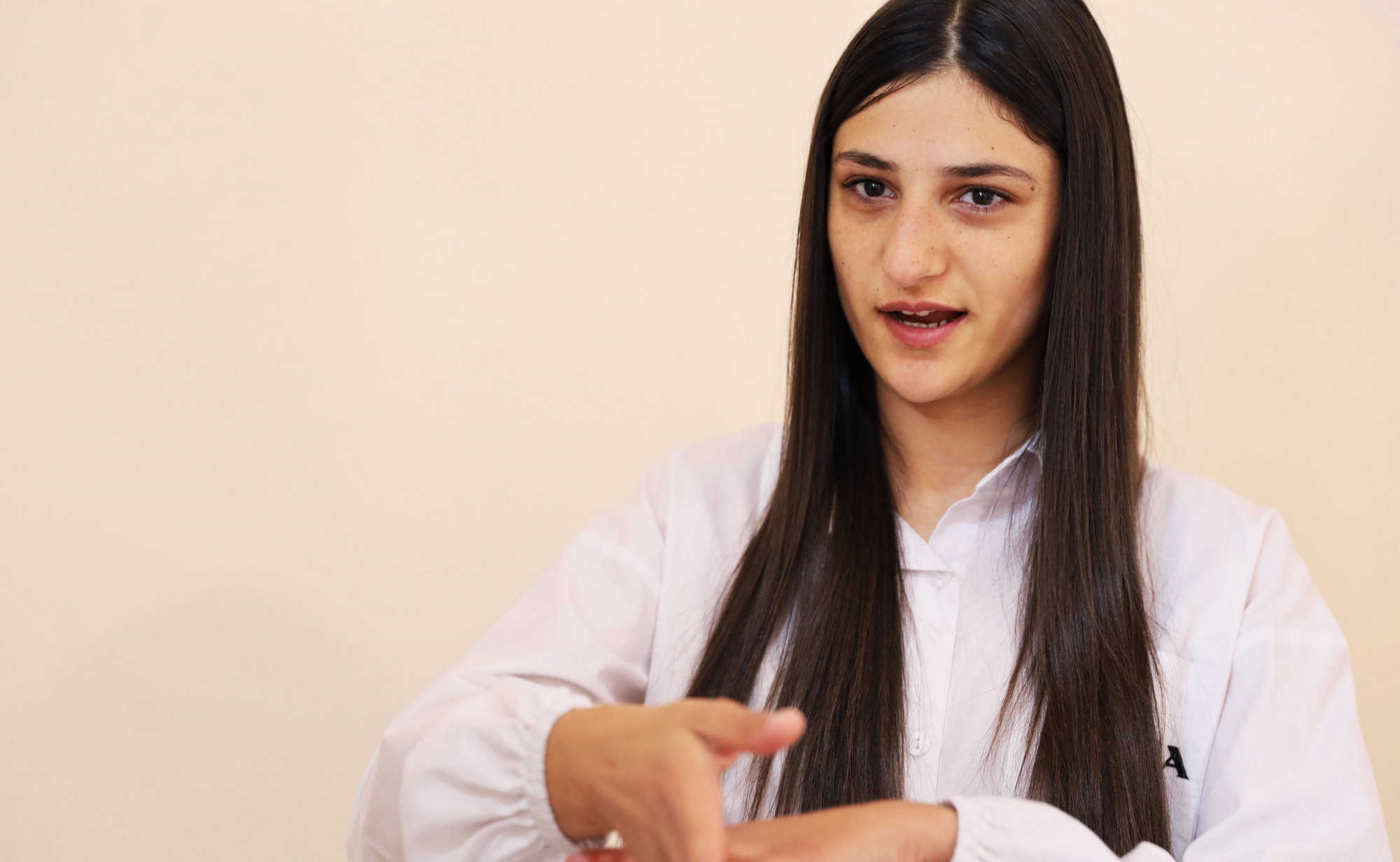
The audience notices that the "100 Years Later" performance in sign language is one of the unique initiatives in Armenia.
"This initiative aligns with the mandate of the United Nations Population Fund. Creating equal opportunities for every member of our society - women, men, children, older population, and people with disabilities, including ensuring inclusion - has always been our most important goal," states Tsovinar Harutyunyan, Head of Office, UNFPA Armenia.
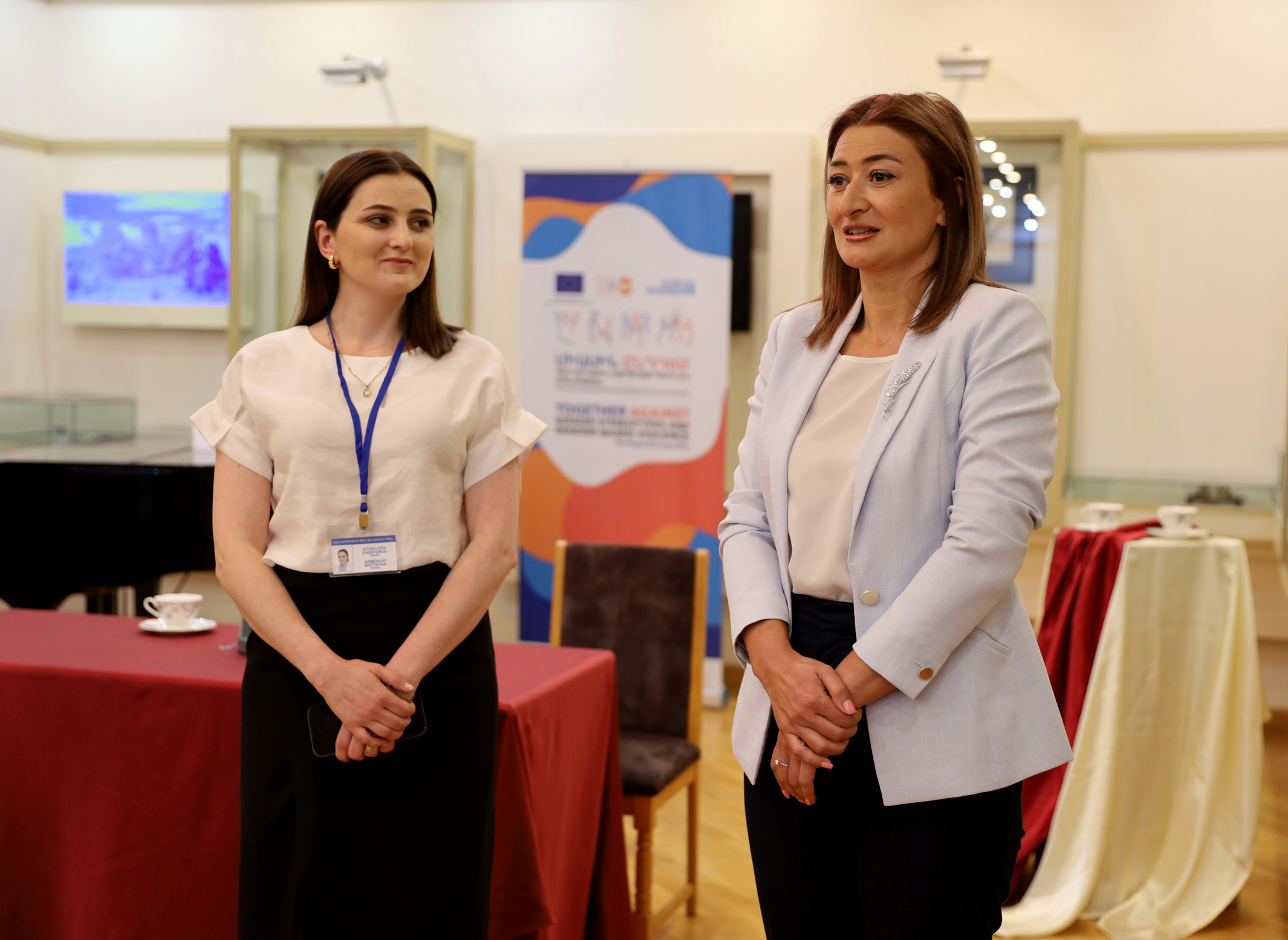
Anna Poghosyan, Deputy Director of Yerevan Special Educational Complex for Children with Hearing Disorders, stresses the importance of equal participation for their students in cultural events such as "Museums Night." “If there weren’t a sign language interpreter and songs in sign language, our students wouldn’t be able to participate. Similar initiatives are few and far between, while the community is large. We have about 116 students in our educational complex. There is a real need for programmes that will make cultural events accessible to people with hearing loss,” she says.
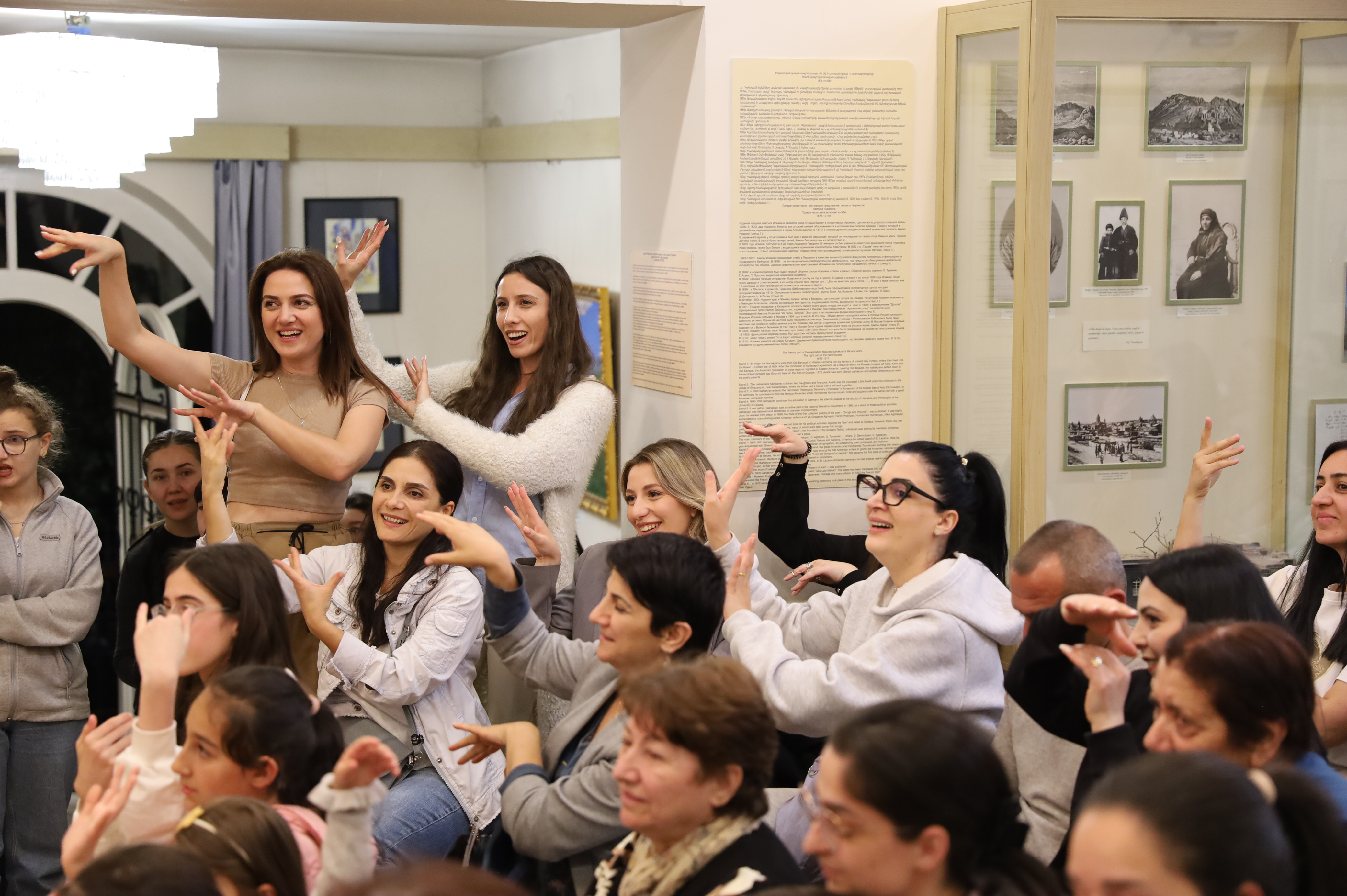
Three years ago, the play started touring all the regions of Armenia in cooperation with the United Nations Population Fund and the OxYGen Foundation, with the financial support of the European Union. With the support of the second phase of the “EU 4 Gender Equality: Together against gender stereotypes and gender-based violence” programme, the “100 Years Later” play has become more inclusive by ensuring its complete sign language interpretation.
This publication was produced within the “EU 4 Gender Equality: Together against gender stereotypes and gender-based violence" programme (phase 2), funded by the European Union, implemented jointly by UN Women and UNFPA. Its contents are the sole responsibility of UN Women and UNFPA and do not necessarily reflect the views of the European Union.
